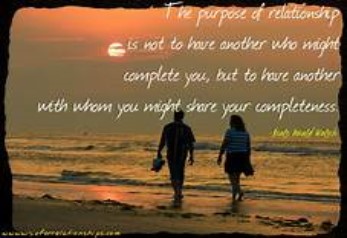COUPLES and RELATIONSHIPS
Most experiments I have offered focus on the individual. That’s because I place emphasis on your design of small, safe experiments. Indeed, I emphasise the importance of not designing things for other people.
I have identified some complications that arise when experiments move beyond the individual – toward the community. It can be helpful to find your place in any community, but it’s not possible to meet all your needs when you do safe experiments.
Another ‘special case’ that cannot be over-looked are couples. There are obvious ‘couples’, when we are in an intimate relationship; but there are others. Anyone who comes to work with me – on-line, or face-to-face – is working to be a ‘couple’. The closeness and intimacy is of a special order, and will not include sexual intimacy involved in close relationships.
Even so , any relationship may well assume that you know what you expect of one another. As this is often a questionable assumption, consider the following safe experiment.
AN EXPERIMENT for couples
Complete the work-sheet below without consulting one another.
TOP LEFT include your expectations of yourself in the relationship. What do you think you are bringing to it. This may, or may not, accord with what your partner includes in their top right box – that’s why I do not want you to consult one with another!
TOP RIGHT include what YOU expect of your partner – in your relationship. This may, or may not, accord with the items your partner puts in their top left box!
BOTTOM LEFT speculate on what your partner wants from you within the relationship. This is least likely to match their top right box!
BOTTOM RIGHT when you think about yourselves as a couple – what do expect to achieve together. This may prove to be the most useful box to address in any later joint work. This box will create a focus for generating some common purpose – without which many relationships founder.

When you have given time to looking at the result on your own, agree on a sensible amount of time to talk together. Even though I’d recommend a short amount of time, it may be difficult to arrange this. You may be tired if it is late in the evening, and it is most unhelpful to use ‘Special Time’ if either of you have been drinking.
Make sure you have an agreement on how to behave towards one another, e.g. no talking over one another; listening attentively, and without criticism, to what is said; focusing on your emotional reaction to what is said without turning it back on to your partner etc.
Other lines of inquiry
Here, we are touching the tip of the iceberg. Specialist help from therapists with additional training may be necessary so you can stand back and notice how you work as part of a couple.
In my view, the couple is a ‘third person’; different and distinct from person one, or person two.
That ‘additional training’ is often referred to as ‘Systemic’ training although third sector Organisations such as Relate offer a well-respected specialist training to its counsellors.
I’d advise caution commissioning any therapist who has not received additional training and I would caution strongly against working with your partner with a therapist known to one or other of you.
If it is obvious why this is so then please have a think and/or send me this contact form with your question.
I have a comment or query to make:
